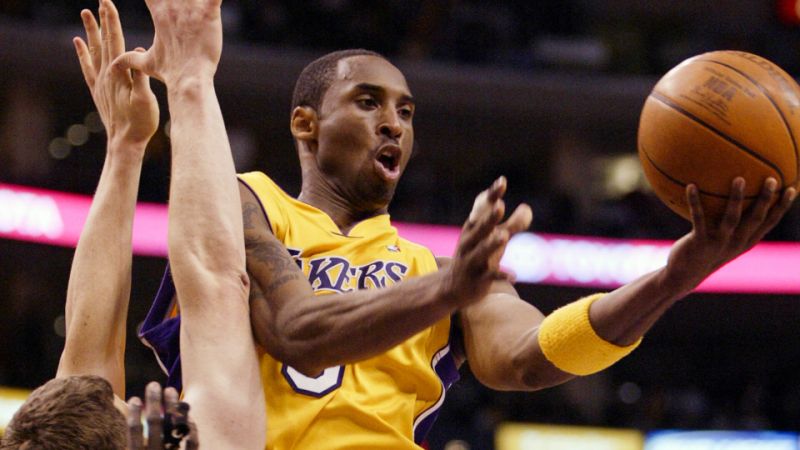|
by Preston Tolliver On Dec. 13, 2013, I drove a few hours to visit a friend in Stillwater, Okla. We had tickets to see the Oklahoma City Thunder host the Los Angeles Lakers. We were big Thunder fans, but the obvious reason for making the drive was to see a basketball legend play before he left the court for good.
For those who have slept too much or drank heavily since then, 2013 was not Kobe Bryant's best year. He had by that point entered the twilight of his career, and as I wrote during his last year in 2016, he was flaring out more than he was fading away from the game gracefully. That night in December 2013, he scored only four points but notched 13 assists. It wasn't the most exciting performance to watch, but I earned a badge of honor: I got to see the Mamba play. I didn't grow up a Lakers fan. Quite the opposite, actually. I was raised on the Chicago Bulls, and when I reached the age of being able to think for myself and look past the legacy Michael Jordan left in Chicago, I became a Boston Celtics diehard. I fell away from basketball after Jordan's retirement and picked it back up around 2008, falling in love with the Celtics core of Ray Allen, Paul Pierce and Kevin Garnett. The Lakers were the obvious enemy, and Kobe their general. Every Finals series between the sworn rivals were wars, and Kobe came out on top more than my Celtics crew. To be frank, I hated the man. But there's a line between hate and respect. I respected how good Bryant was at what he did; I just despised that he kept doing it to my favorite team. Over time, as the Celtics descended into a D-League team built around Kelly Olynyk and I began to see my enemy not the Lakers, but the Celtics management, I began to even like watching Bryant play. Love him or hate him, he made each game special. Kobe Bryant's legacy is controversial, both on and off the court. On the court, he was the greatest guard we've seen this side of Michael Jordan (and arguably the only player who matched Jordan's intense desire to win), but he also wasn't shy to shoot the ball more than he should (his legendary swan song, his last game, he scored 60 points on 50 shots). Off the court, he was a philanthropist and a leader for up-and-coming players (including his daughter, Gianna, who was also killed in Sunday's crash), though he could never escape questions surrounding his rape allegations. Those questions and criticisms will forever be branded on Bryant's legacy, but what's indisputable is what he meant to the game of basketball. He wasn't just the successor to Michael Jordan, and he wasn't just the face of an organization with one of the most storied histories in the league. For a long time, he was the face of the league, and his impression lives in it. He was the inspiration for players the league over, and continued to train players after retirement (he even crossed battle lines to help Celtics star Jayson Tatum). Without Kobe Bryant, the NBA doesn't exist as it does today. Bryant was a 5-time NBA champion, a 2-time Finals MVP, the 2008 league MVP, an 18-time All Star (even getting voted in by fans during those horrid final years), and a 2-time Olympics gold medalist. Even though he's been off the court for almost four years, his death still leaves a giant hole in the NBA. Following his death, L.A. Clippers coach Doc Rivers - who previously coached the Celtics - said, "We're all Lakers today." I never thought I'd say that, much less hear the coach of the Lakers' two biggest rivals say it, but he's right: We're all Lakers today.
0 Comments
Leave a Reply. |
Archives
July 2024
|
